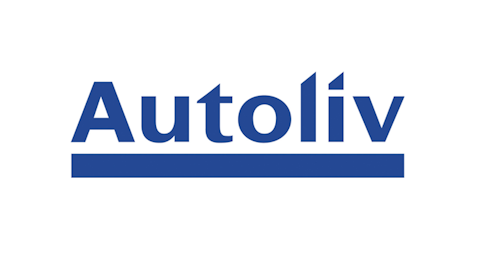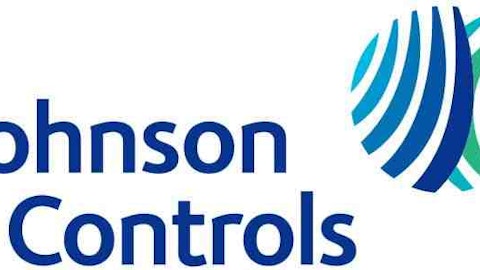Cevian Capital is an international investment firm founded back in 2002, by Lars Förberg and Christer Gardell, which has grown to be Europe’s biggest activist manager and the second biggest dedicated activist globally. The firm is advised by Cevian Capital AB (Stockholm), Cevian Capital LLP (London) and Cevian Capital AG (Zürich). Its co-founder, Mr. Förberg, has comprehensive investing experience in a plethora of industries, and across many countries, mainly dealing with companies that are going through some kind of operational and/or strategic adjustments. Before launching Cevian Capital with Christer Gardell, Mr. Förberg was an Investment Manager and Partner at Nordic Capital. He earned his M.Sc. in Economics and Business Administration from the Stockholm School of Economics (counting studies at the University of Michigan) and holds 2nd year of MBA program from the University of Michigan. Mr. Gardell also brings a lot of professional expertise to Cevian, as prior to co-founding the firm, he was also appointed at Nordic Capital, where he was a Senior Partner. He earned his MBA and Master of Science in Economics from Stockholm School of Economics (counting studies at the Business Schools, and holding a B.Sc. In Economics).
European public companies from industrial, financial, and manufacturing sectors are the fund’s main targets, as these best match its investing approach, which is value driven. Cevian Capital looks for doubling its investment in the span of three to five years, owns a concentrated portfolio (with 10 to 12 positions) with an average period of holding from three to five years, has one strategy and one fund. Its current fund, Cevian Capital II was launched 12 years ago, and since its inception through January it has brought back an eye-popping return of 260%, compared to 77% that MSCI Europe Index delivered in the same period. In the first year of its launch from July 2006, through the end of October the same year, Cevian Capital II returned 18%, beating the HFRI Event-Driven (Total) Index, which delivered 4.3%; in 2009, Cevian Capital II generated a return of 35.7%, and in 2016, it gained 19.4%. According to its website, the fund manages more than €13 billion (around $14.83 billion), with more than a half of its investors being institutions, such as pension funds and endowments, and the rest making family offices and funds. Of course, all partners of Cevian are also its investors. It is interesting to mention that one of its publicly disclosed investors is billionaire Carl Icahn.

Two significant contributors to Cevian Capital’s astonishing performance in the recent period were Volvo AB Class B (STO:VOLV-B) and Danske Bank A/S (CPH:DANSKE) exits. Namely, at the end of 2017, the fund sold its long-held stake in Volvo to China’s Gelly for around €3 billion, making an income of about €2 billion counting dividends. Before exiting and hence making this the most profitable activist investment ever, Cevian Capital held a position in the company for 12 years, sticking out and even raising its position during the “tough years” for Volvo. At the end of 2017, the fund also sold out its 6 years held long position in Danske Bank making a strong annualized return – a profit of almost 300% when counting dividends.
On the next page, you can read more about Cevian Capital’s activism approach and its top stock picks.
When it comes to its activism strategy, Cevian Capital is known for its skillful approach to the board of the companies it invests in – it has never had to win a proxy battle in order to get a board seat. And with its professionals being a part of the nine boards in six countries at the moment, we can just conclude that Cevian Capital has perfectly mastered the art of sophisticated and productive activism. They really put their efforts into helping companies become better and stronger, with one of the best examples being Danske Bank, on whose board was Lars Förberg for three consistent years.
Since the fund owns a concentrated portfolio and prefers to hold its stakes for several years, it can only build a few new positions every year. Let’s take a look at its most recent top stock picks, and the only two in its portfolio that are trading on NYSE.
In March 2018, Cevian Capital initiated a long position in Autoliv Inc. (NYSE:ALV), the world’s number 1 automotive safety company that supplies the best car manufacturers in the world. The company is based in Sweden and it trades both on the New York Stock Exchange and on the OMX Stockholm Stock Exchange. According to the company’s promo, every year its products help save more than 30,000 lives and prevent more than 300,000 severe accidents. At the end of the third quarter, Cevian Capital’s position in Autoliv counted 5.72 million shares, with a value of $496.13 million. In its recent financial report for Q3 2018, the company disclosed a gross profit of $386.1 million compared to $394.9 million for the same period in 2017, and operating income of $192.5 million versus $167.2 million in Q3 2017. Its adjusted earnings per share amounted to $1.35 compared to $1.64 in the third quarter of the previous year. Year-to-date, Autoilv’s stock has lost 21.75% and it is currently trading at $72.06.
The second Cevian Capital’s top stock pick just continues the story, as it is the company which is the spin-off of Autoliv’s electronic segment. The new company, Veoneer Inc (NYSE:VNE), which has its main focus on Advanced Driving Assistance Systems and Automated Driving, started trading on NYSE and Nasdaq Stockholm at the middle of the year. On September 30, 2018, Cevian Capital disclosed a stake in Veoneer that was worth $315.20 million, and counted 5.72 million shares. Since the company started trading at the beginning of July until now, its stock price has lost 41.71% and, at the moment of writing, it is trading at $24.86. For the the third quarter 2018, Veoneer reported net sales of $526 million compared to $567 million in the same quarter of 2017, and gross profit of $99 million, versus $109 million in Q3 of 2017, and operating loss of $58 million, compared to operating loss of $16 million in the same period in 2017.
Disclosure: None.
This article was originally published at Insider Monkey.





